Category Archive for "Areas of Practice"
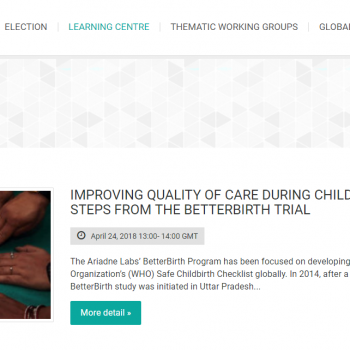
Webinar on Improving Quality of Care during Childbirth: Learnings and Next Steps from the BetterBirth Trial
Join the webinar organized by Health Systems Global. During this webinar, Katherine Semaru will discuss the lessons learned from the BetterBirth trial towards the increase of quality of maternal and newborn care, and the work still needed to reduce maternal and neonatal morbidity and mortality.
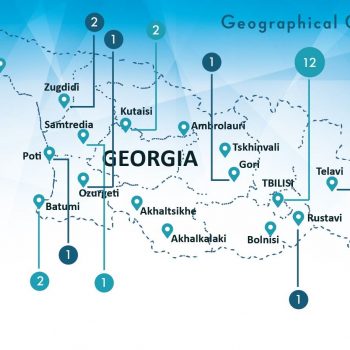
Closing Project: Tuberculosis Community Systems Strengthening in Georgia
The Curatio International Foundation has fulfilled a Tuberculosis Community Systems Strengthening (TBCSS) Project in Georgia, funded by the Stop TB partnership in the frame of Challenge Facility for Civil Society (CFCS) round 7 program. The goal for the project was to strengthen community response that is integrated and part of a comprehensive response to TB in Georgia.
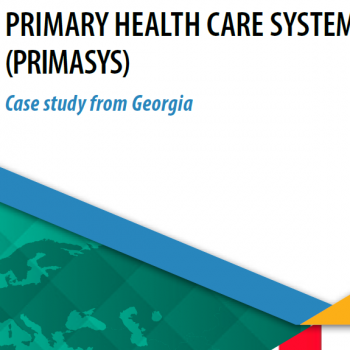
Primary Health Care Systems: Georgia case study
Curatio International Foundation publishes Georgia case study of primary health care system (PRIMASYS). The PRIMASYS case study covers key aspects of primary health care system, including policy development and implementation, financing, integration of primary health care into comprehensive health systems, scope, quality and coverage of care, governance and organization, and monitoring and evaluation of system performance.
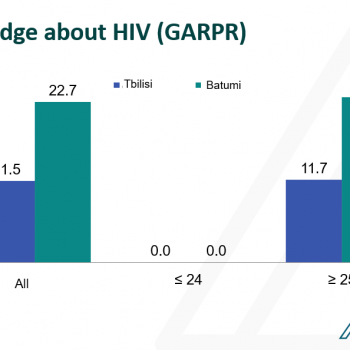
Integrated Bio-behavioral surveillance and population size estimation survey among Female Sex Workers in Tbilisi and Batumi, Georgia
This study represents the subsequent wave of BBS surveys undertaken among FSWs since 2002. The current study was conducted in 2017 using the Time-Location Sampling technique and 350 FSWs was recruited in total in two survey locations – 200 in Tbilisi and 150 – in Batumi.
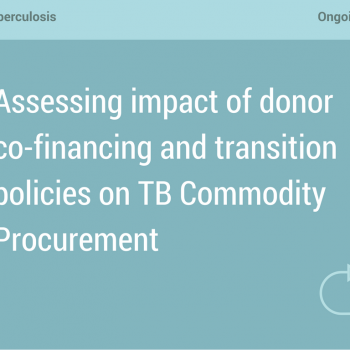
Assessing impact of donor co-financing and transition policies on TB Commodity Procurement
The assignment will last 10 months and aims to assess positive and negative implications of The Global Fund’s (TGF) Sustainability, Transition and Co-Financing Policy (STCP) that may have on TB commodity procurement practices on a country level in EECA region.
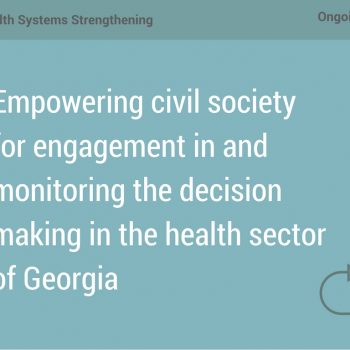
Empowering civil society for engagement in and monitoring the decision making in health sector in Georgia
The project aims to strengthen CSOs working on Health Systems to participate in the decision-making process, to assume watchdog functions, monitor enforcement of policies and advocate for better health for all. The project is funded by Open Society Foundation through proactive cooperation with Open Society Georgian Foundation.
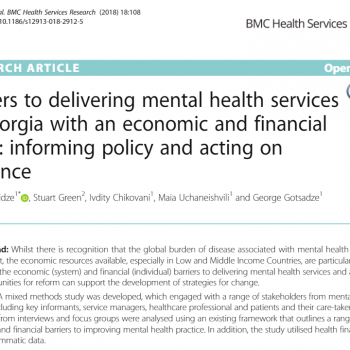
Article: Barriers to delivering mental health services in Georgia with an economic and financial focus: informing policy and acting on evidence
A new paper discusses the economic and financial barriers to delivering mental health services in Georgia and assessing the opportunities for reform that can support the development of strategies for change.
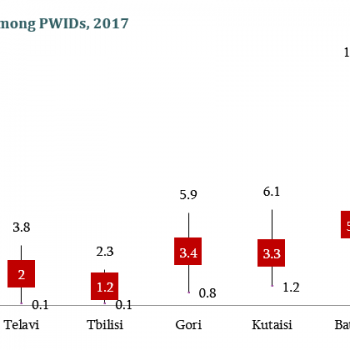
The Interview on population size and Human Immunodeficiency Virus risk behaviors of People who Inject Drugs in Georgia
The interview is based on the latest wave of the integrated Bio- behavioral surveillance survey conducted People Who Inject drugs (PWID) in 7 cities of Georgia. The research aims to mesure the prevalence of Human Immunodeficiency Virus (HIV) and Hepatitis C virus (HCV) among PWID, define key risk behaviors related to HIV and generate evidence for advocacy and policy development.
Population Size Estimation of People who Inject Drugs in Georgia 2016-2017
This study estimated the size of People Who Inject Drugs using different estimation methods to provide the most plausible estimates. The study was carried out in conjunction with the Bio Behavioral Surveillance Survey among injecting drug users.
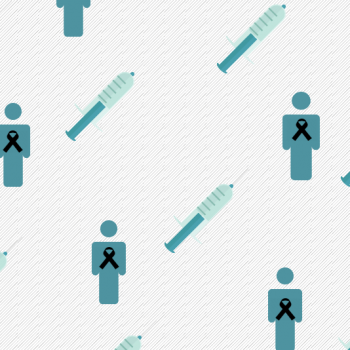
HIV risk and prevention behaviors among People Who Inject Drugs in seven cities of Georgia, 2017
Current study represents the latest 7th wave of Bio-Behavioral Surveillance Surveys among People Who Inject Drugs. Objective of the study was to measure prevalence of HIV and Hepatitis C among PWID, provide measurements of key risk behaviors and generate evidence for advocacy and policy-making.
